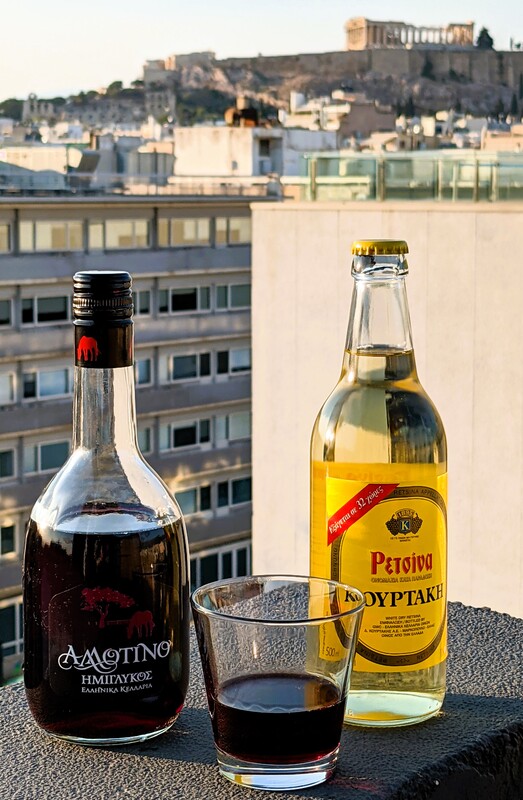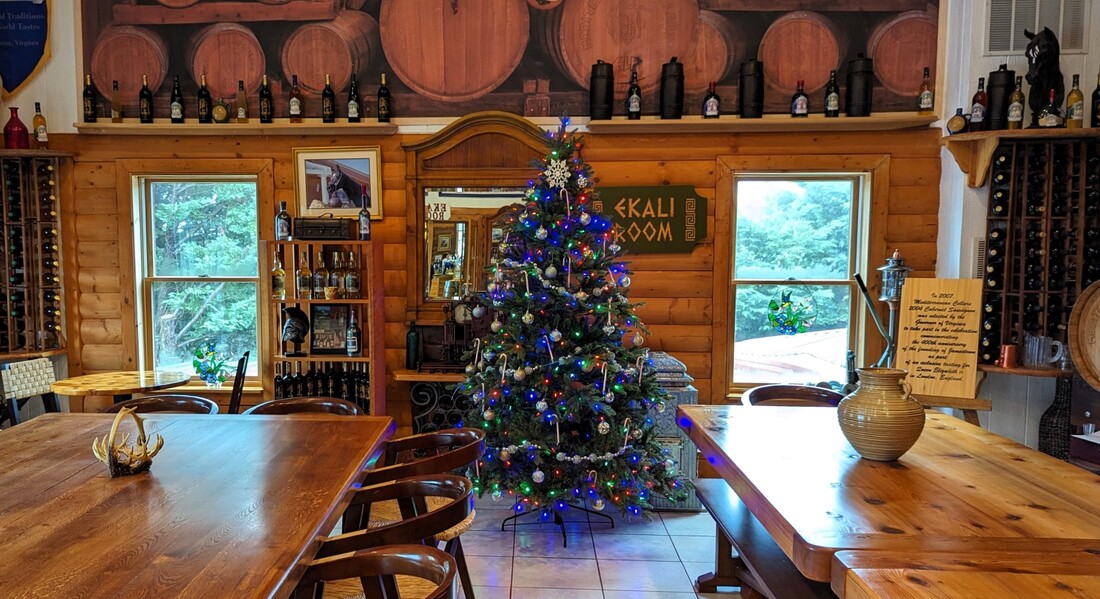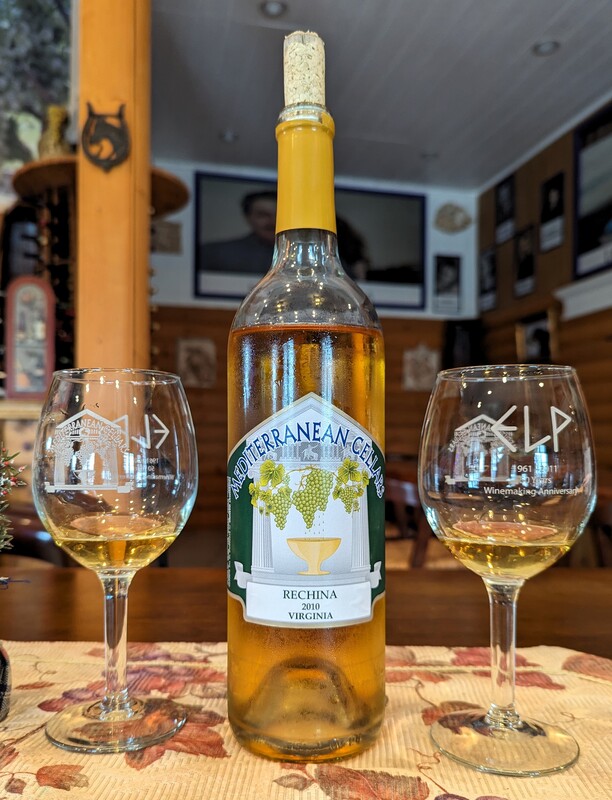|
Back in the good old days before facebook, cell phones, and Love Island, there was still wine. However, it didn’t come in glass bottles, fancy cans, or even cheap cardboard boxes. That beautiful beverage of Bacchus used to be stored in large clay jars sealed with tree sap!! This not only kept the bugs (and children?) out, but also imparted a strong taste to every single sip. Since it was always there, it presumably wasn’t any more noticeable than oakiness would be today, just one of many flavors which imparts interesting character. To the modern degenerate, though, the taste of pine sap in your fancy grape juice can be surprising at best, and ghastly at worst. Palates differ, though. Pine and wine remain a popular combination in one of the best wine regions of the world: Greece. The Greek people still produce and drink wine that tastes like the good old days. They call it retsina and it is produced by many vineyards. We like it, but it’s not for everyone. Making matters worse, the Greeks are smart enough to keep the good stuff for themselves. Therefore, much of the wine exported to the US and UK can be of pretty low quality. As a result, that first cheap bottle you drink could leave a bad first impression. It would be akin to meeting a supermodel, but only after she accidentally took PCP and went on a 48-hour cavalcade of drinking and fighting across the many dive bars of Kansas City with no time to shower, fix her makeup, or even properly accessorize. Just like retsina, you might want to give her another chance. So where can you get some good retsina in the states? You can try the imported section of your favorite wine store. If you are ever on the East Coast of the US, you could even try something a bit more local. The only wineries we are aware of which produce a good domestic retsina are Mediterranean Cellars and Molon Labe vineyard. Both are located in Virginia of all places. Both also have very good quality wine, but we prefer Mediterranean Cellars a wee bit more. They produce a white retsina called rechina. Having been there many times, we have it on good authority that the wise people of Mediterranean Cellars import their pine sap directly from Athens, so you will not be tasting the trees of Arlington or Richmond, but only the actual Greek stuff. This makes sense, as the founders of the vineyard hailed from the same land that gave us Homer, Heraclitus, and John Stamos. Now, if you are a bit of a wine snob, try to bracket your snootiness and give this interesting drink a shot. Some part of you out there must be bored tasting the same old Chardonnays and Pinot Grigios, so you should give it a try. You could even turn it into a quick meal by enjoying your retsina with some fresh bread, Greek feta, walnuts, raspberries, and dates. Tasting notes
Unlike traditional Greek retsina, Mediterranean Cellars’ rechina is far lighter on the pine. The judicious use of resin is more perfume-y and less overpowering, so it’s more accessible to a less adventurous palette. It tastes of:
Interestingly, this seems to get better and more complex as it gets warm. You can drink it cold, of course, but we prefer it closer to room temperature. Better yet, you could split the difference by pouring yourself a big cold glass and drink it slowly for a strange and rewarding taste experience. If you can, grab a bottle of the 2010 vintage before it sells out, as it is particularly good.
0 Comments
|
Categories
All
Archives
March 2025
|




 RSS Feed
RSS Feed